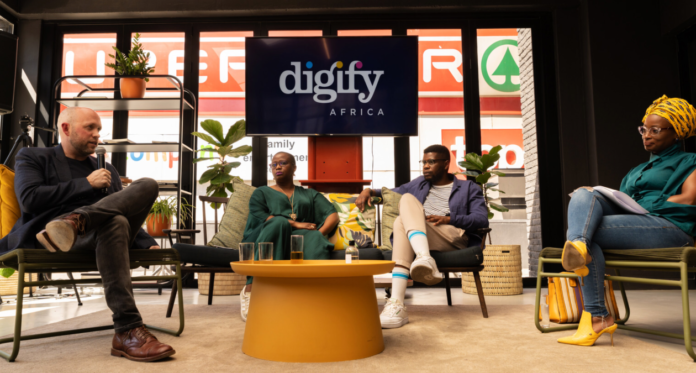In 2011, Londoner Gavin Weale arrived in Cape Town to launch the SA edition of the UK youth-run publication Live Mag. Weale is the founder and CEO of Digify Africa, an award-winning digital marketing skills training nonprofit organisation.
Weale spoke to The Daily Vox about Digify Africa and why young people across all communities should learn digital skills.
Listen here:
What is Digify Africa?
Digify Africa is a pan-African free digital skills training organisation that has impacted as many young people across the continent. Our mission has been to help young people in Africa to become resilient and successful as the future of technology impacts the continent. Since 2011, the organisation has created and delivered demand-driven digital training programmes for various professions and sectors.
What is the digital skills gap in South Africa and the continent?
The digital skills gap in South Africa and the continent is still a persisting and an urgent issue. This is even though there are economic opportunities in Africa’s rapidly growing technology/digital sector. The digital divide continues to limit access to marginalised communities.
The digital skills gap can be understood as lack of basic and foundational skills in understanding digital literacy and efficiently tapping into the digital economy. This divide is exacerbated by a scarcity of training options, shoddy infrastructure, a lack of collaboration innovators and policy makers, and insufficient financing across the board.
Our programmes such as Boost With Facebook, Digify PRO and Ilizwe Lam are pushing to bridge the gap by taking digital literacy to in-need communities. Digify Africa has been offering digital skills to youth since 2011. With the support of Facebook, programmes like Digify Pro and Boost with Facebook, we have upskilled over 10 000 young people and small-to-medium enterprises across South Africa, Nigeria and Kenya.
Without digital access in education and employment, South Africa risks worsening inequality. According to Dudu Mkhwanazi of Project Isizwe, a social enterprise that aims to provide low-income communities with affordable access to wifi, 7.5 million low-income South Africans are paying 80 times more than middle- and upper-income citizens for access to the internet, exacerbating inequality in the country.
Why should young people across all communities learn digital skills?
Digify Africa is encouraging communities to be digital-savvy. We have introduced a Whatsapp learning Bot called Naledi, which aims to give the communities a platform to learn at their own pace and time. Here is why young people across all communities should learn digital skills.
Digital skills are in demand
Most businesses are now aware that the bulk of their consumers use the internet. As a result, there is increased demand for websites, digital marketing abilities, mobile apps, and content, among other things. Having one or more sets you apart and gives you an edge in a competitive job environment.
Entrepreneurship opportunities
The opportunities for entrepreneurship are endless. You can start your own web design, digital marketing, or content creation company if you have digital skills with the right skills.
Social Impact
Digital skills pave the way for innovation and offer solutions that can help address the many social challenges.
The future of work is digital.
The pandemic has ushered in new ways of working and remote working is quickly becoming the norm. A simple or basic knowledge of these tools instantly puts you ahead and makes your work easier.
How can digital skills help us overcome the challenge of youth unemployment?
There is a greater need to offer quality education, which will incorporate innovation and digital skills into the education system to prepare the youth for the challenges of the present and future opportunities.
Digital skills are not only beneficial for economic growth, development, and opportunity. These skills bring us closer to solutions that speak to local socio-political issues in our different countries on the continent. For Africa to keep up with the ever-changing technological world, digital skills offer young people the opportunity to create and monetize their innovations via digital platforms.
Equipping young people with job-ready, transferable digital skills can enhance their employment opportunities and trigger a virtuous circle of improved labour market outcomes, increased productivity, innovation, and economic growth for economies worldwide.
A holistic approach is therefore required when developing skills-development programs. Most Industries these days require digital skills, and if the youth are not empowered with these in-demand and future work skills, they will be left behind.
This interview has been edited for clarity and brevity.









